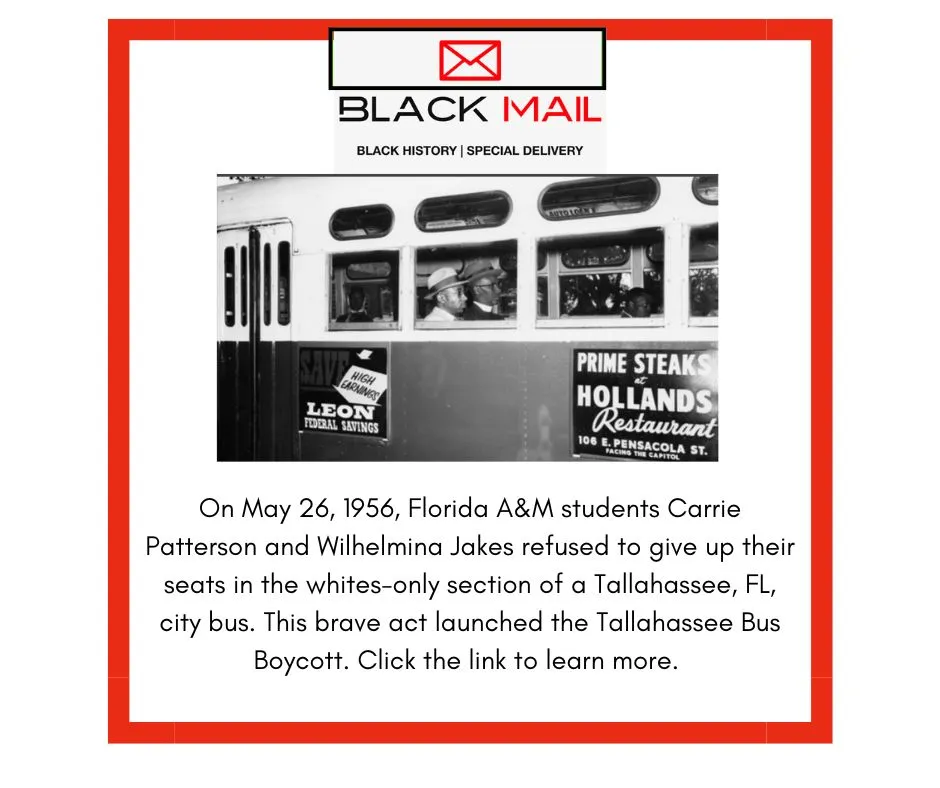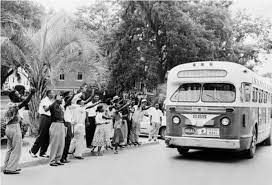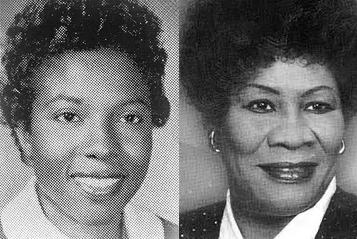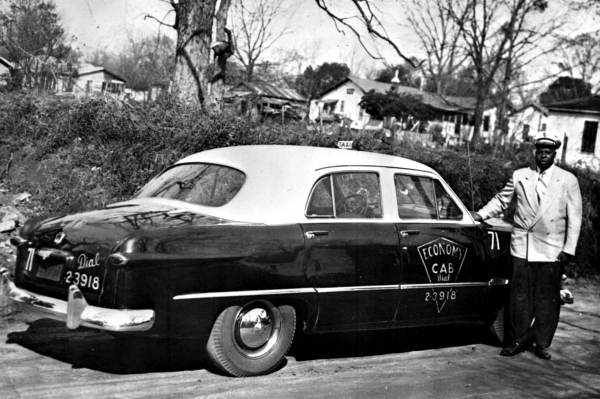Welcome to Black Mail, where we bring you Black History—Special Delivery!
On May 27, 1956, two Black women, Carrie Patterson and Wilhelmina Jakes, boarded a city bus in Tallahassee, Florida, taking the only two open seats near the front of the bus in the “whites only” section. Both were students at Florida Agricultural and Mechanical University (Florida A&M), a historically black university (HBCU). The women were ordered to move to the back of the bus to stand or exit the bus with no refund of their paid fare. Both women refused. The bus driver then called the police and arrested Jakes and Patterson. They were charged with inciting a riot and were later released on bond the same day. Their refusal to give up their seats happened less than one year after Rosa Parks refused to give up her seat on a Montgomery, Alabama bus, launching the Montgomery Bus Boycott.
The following morning, Rev. C.K. Steele of the local NAACP visited the women to express the organization’s support. That evening, a cross was burned in the front yard of the home shared by Jakes and Patterson. Fearing for their safety, they sought shelter on the campus of Florida A&M for the night. News of the cross-burning spread quickly among students, who assembled to explore what actions they should take in light of the recent events. The students decided that they would boycott city buses until the end of the semester. The boycott officially began on May 28, 1956.
News of the boycott spread quickly throughout the local community, and residents decided to join the student-led non-violent boycott. The boycott led to the formation of the Inter-Civic Council (ICC). The organization’s objectives were: respectful and courteous treatment of Black residents while riding city buses, hiring of black bus drivers equal to the number of white bus drivers, and equal seating access. Car pools were set up to provide transportation to students and residents during the boycott. Twenty-one of the volunteer carpool drivers were arrested and charged with operating a taxi without a license, even though the drivers did not get paid. Bail for those arrested was $11,000. Once the volunteer drivers were released, they resumed their work.
Motivated by a loss of revenue and the threat of closure, during the third month of the boycott, the City began to make some concessions, starting with the hiring of Black bus drivers. Seth Gaines was the first Black person hired as a bus driver on a regular route for the Cities Transit Company in Tallahassee. In the midst of police intimidation tactics, the boycott continued until December 22, 1956, when the U.S. Supreme Court declared that segregation on city buses was unconstitutional; the Inter-Civic Council announced that the city’s Black residents would return to riding the busses as long as the seating was no longer segregated. Students seeking to test the new ordinance were arrested. Complete desegregation took many months to achieve. The city commission declared that seating would now be driver-assigned but stopped short of adopting complete desegregation. The city and Black residents never reached a formal settlement, but over time, there was less resistance to Black people riding in front of the bus.
Patterson and Jakes, the brave women whose efforts launched the boycott, eventually had the charges against them dropped.
Another installment of melanated mail has been delivered. Ponder, reflect, and pass it on.





